Subtraction practice Normal Addition & Subtraction Worksheets for Ages 3-6
13 filtered results
-
From - To
Welcome to our Subtraction Practice Worksheets for ages 3-6! Designed to make learning fun and engaging, these printable worksheets provide young learners with an essential foundation in basic subtraction. Through colorful visuals and interactive activities, children can develop their problem-solving skills and number sense. Each worksheet encourages critical thinking while accommodating varying skill levels, ensuring that every child progresses at their own pace. Parents and educators will appreciate the ease of use and the variety of exercises that bring subtraction concepts to life. Foster a love for math in your little ones as they master subtraction in enjoyable ways!
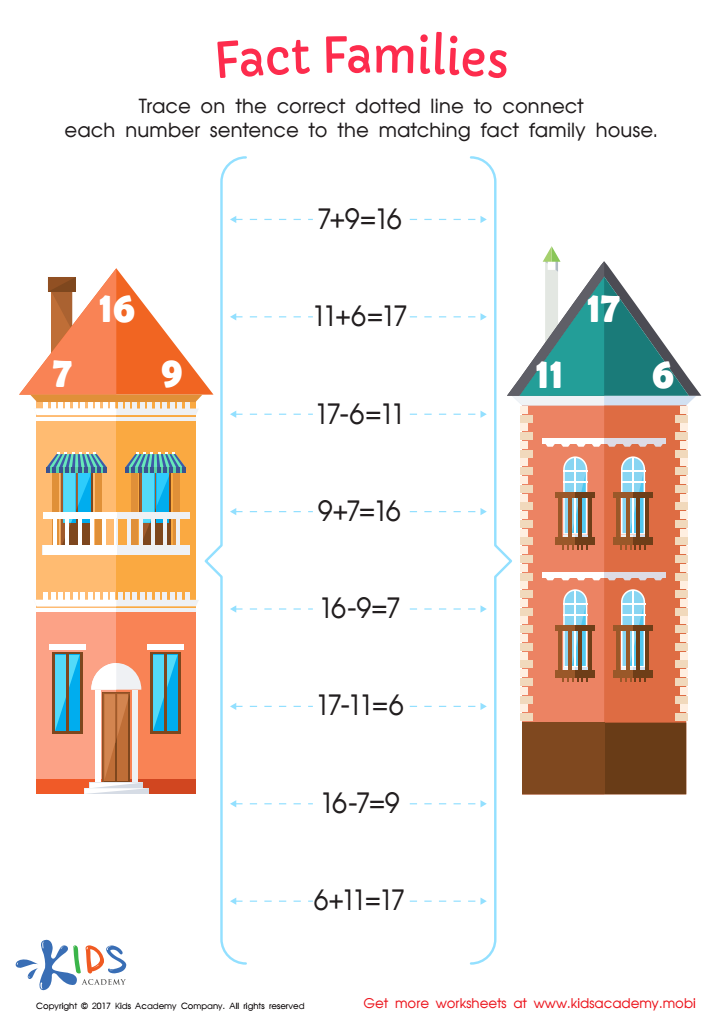

Fact Families — Add and Subtract Worksheet
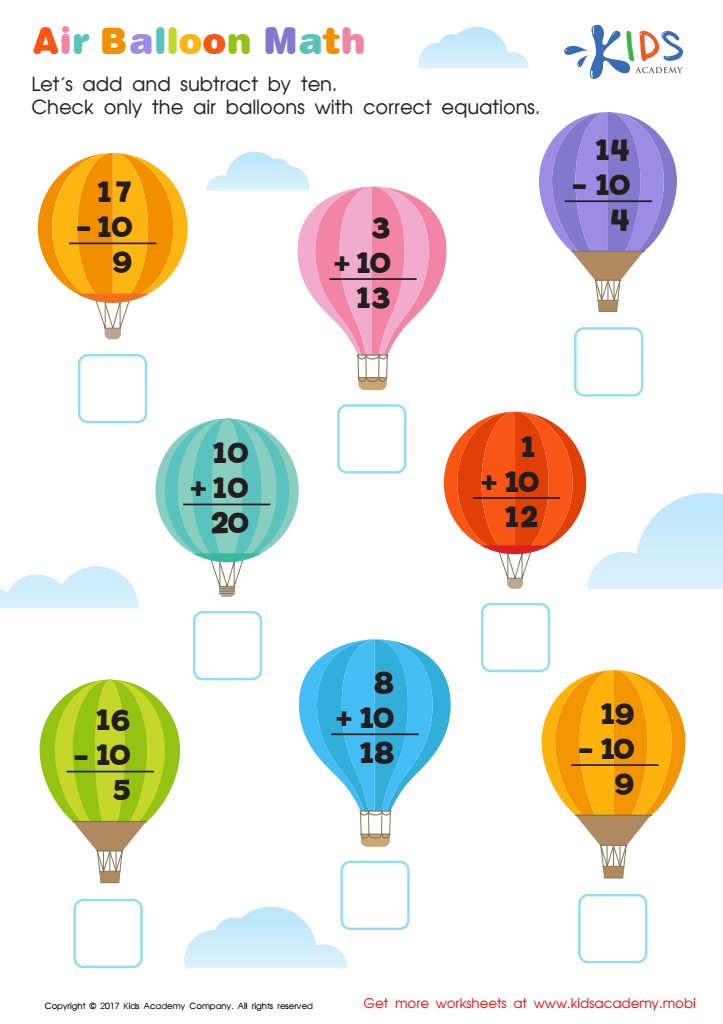

Air Balloon Math Worksheet
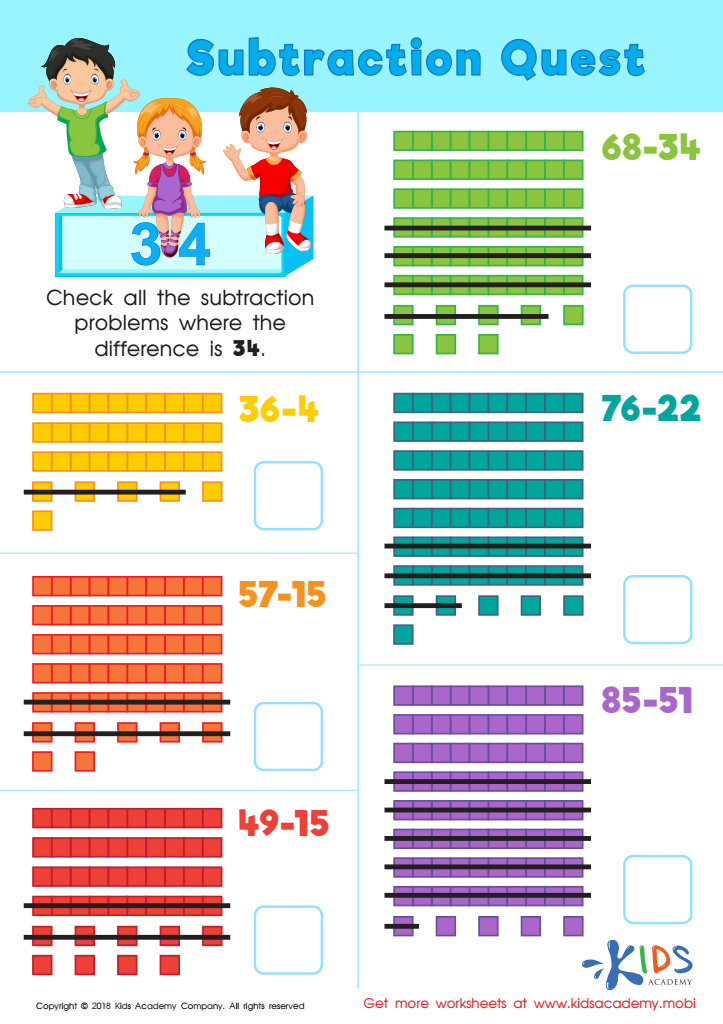

Subtraction Quest Worksheet
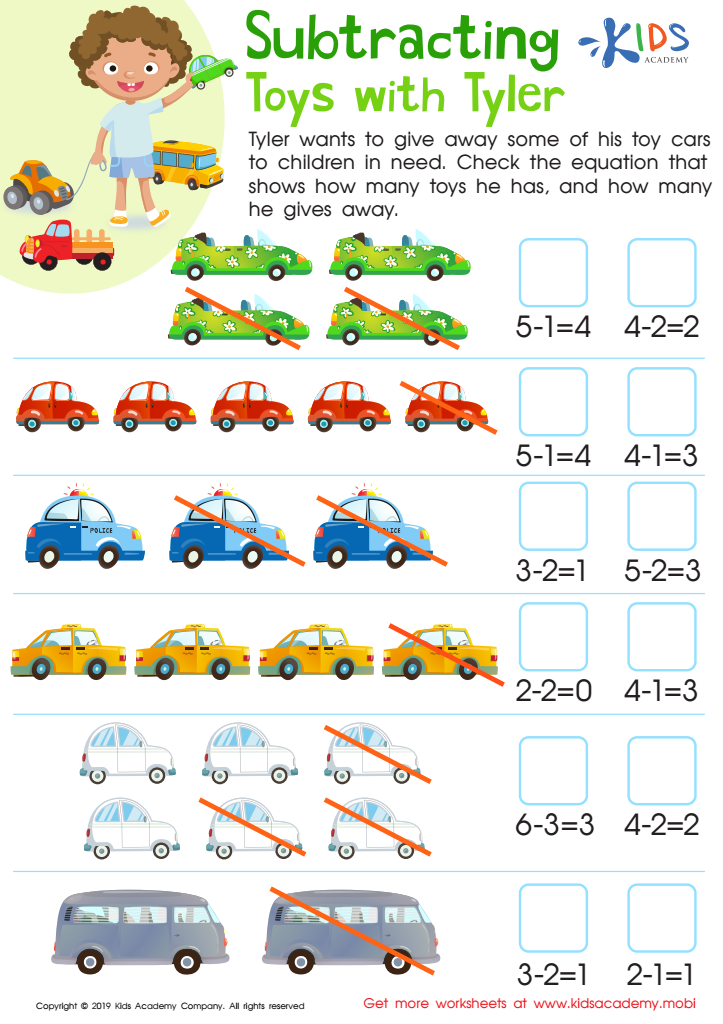

Subtracting Toys with Tyler Worksheet
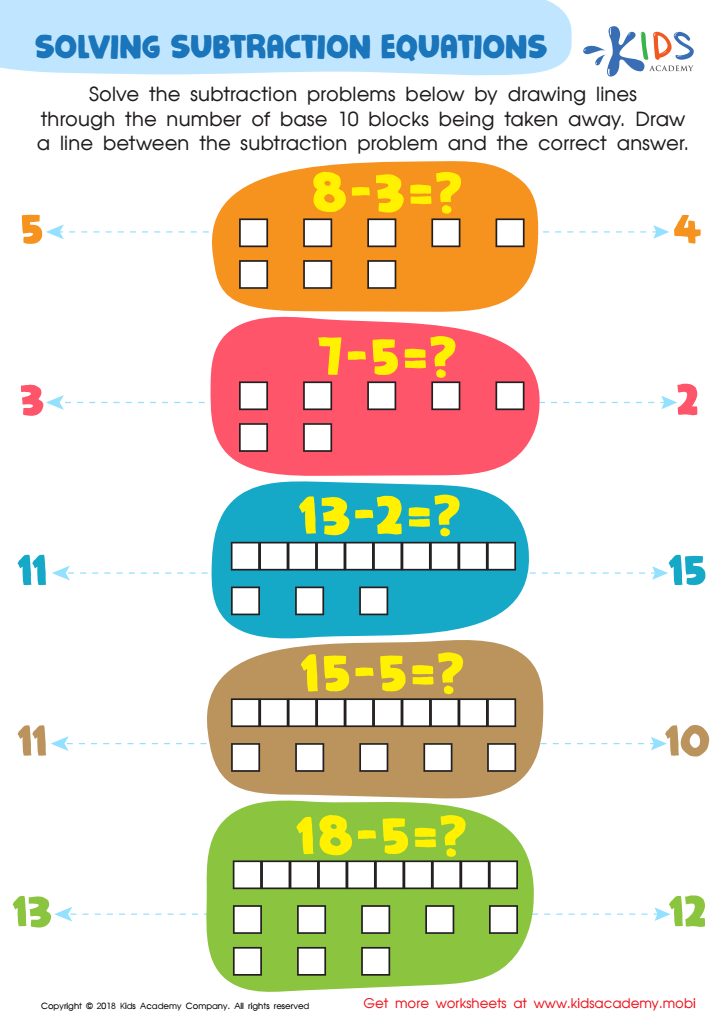

Solving Subtraction Equations Worksheet
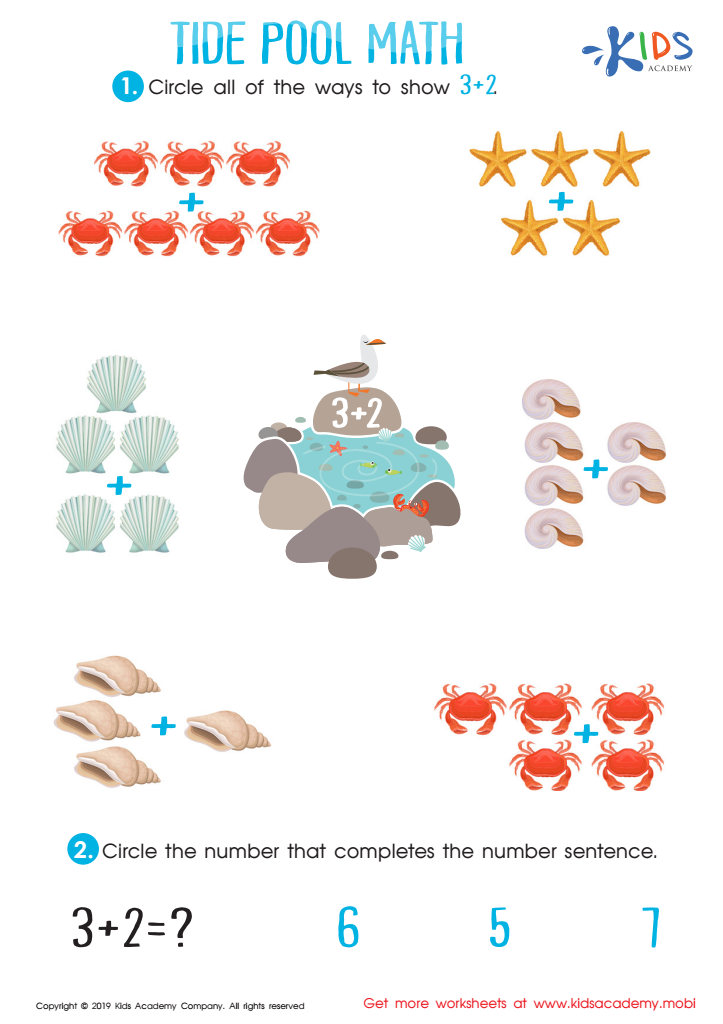

Tide Pool Math Worksheet
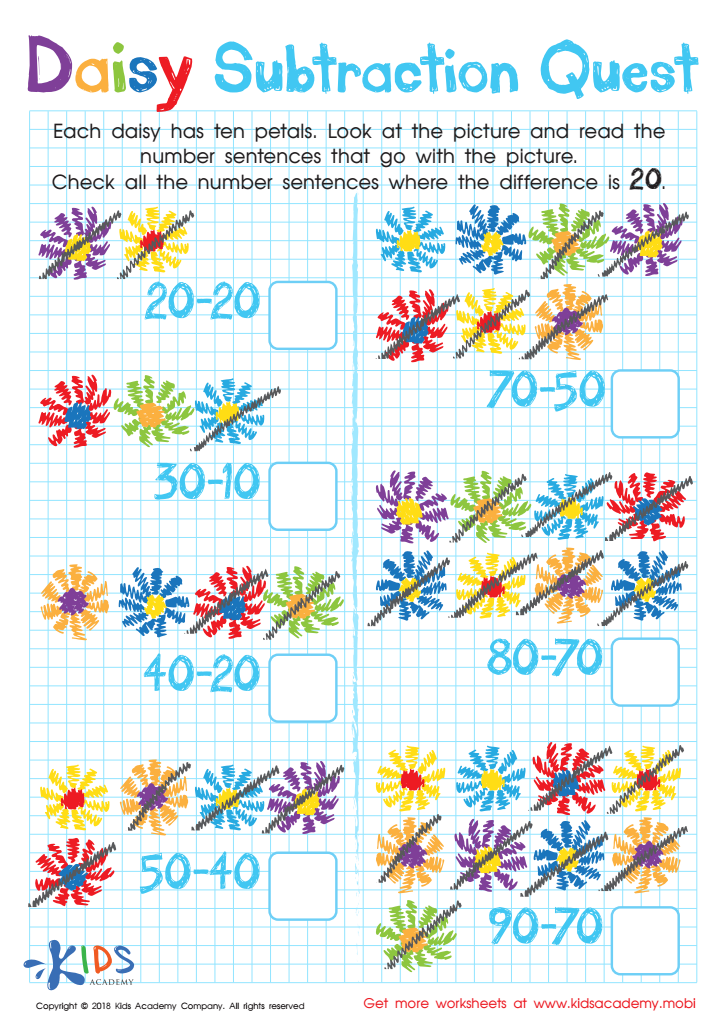

Daisy Subtraction Quest Worksheet
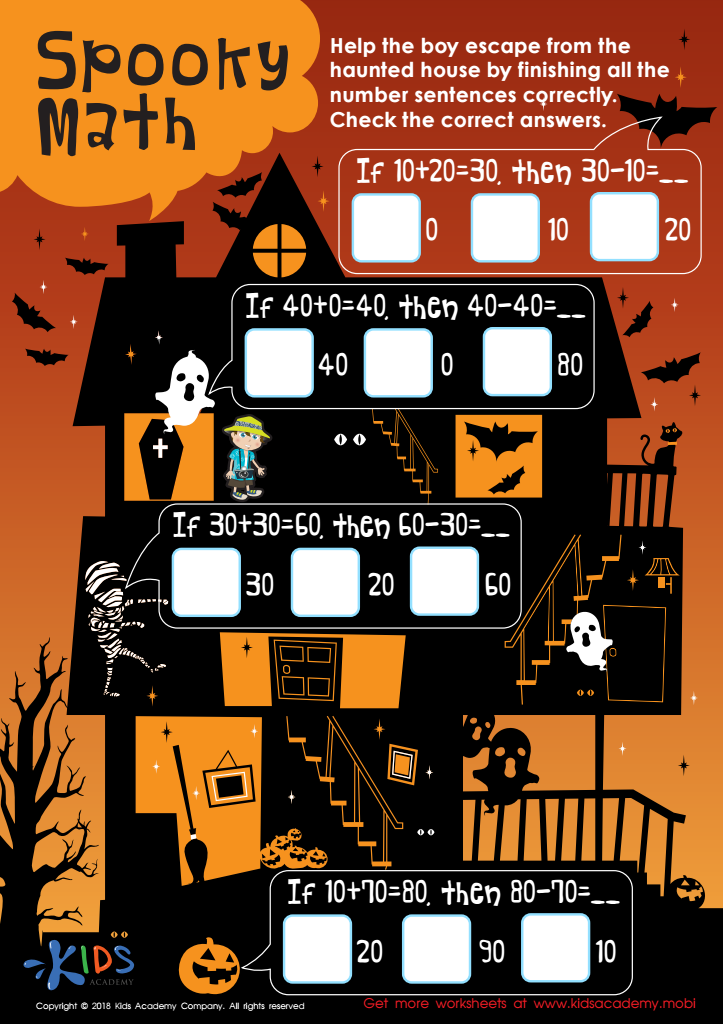

Subtract Tens: Spooky Math Worksheet
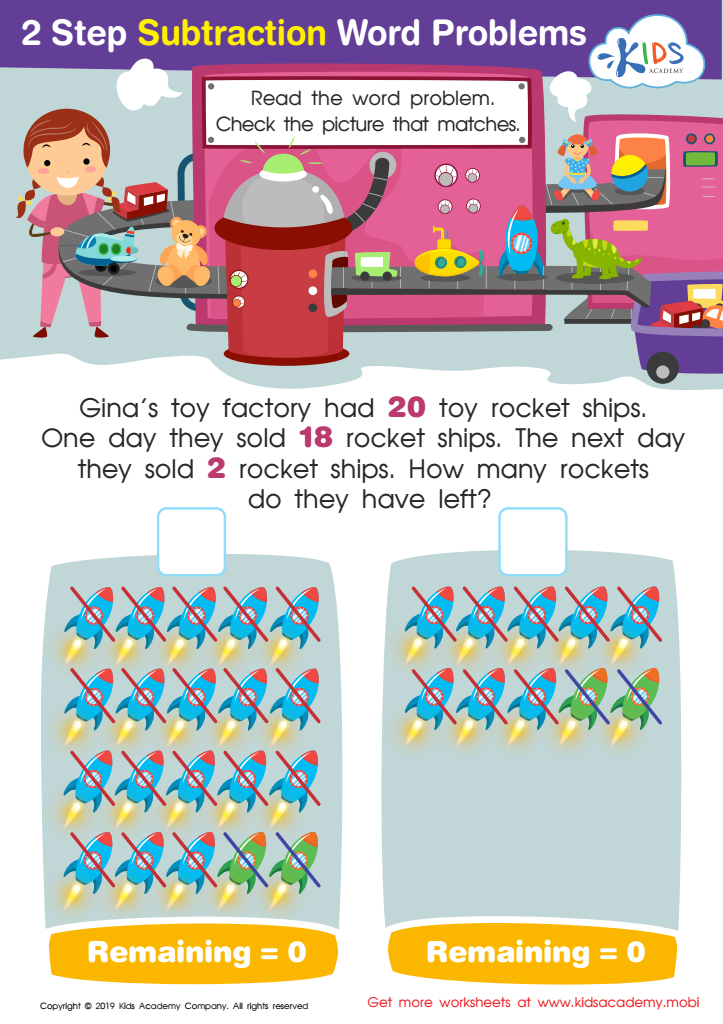

Step Subtraction Word Problems Worksheet
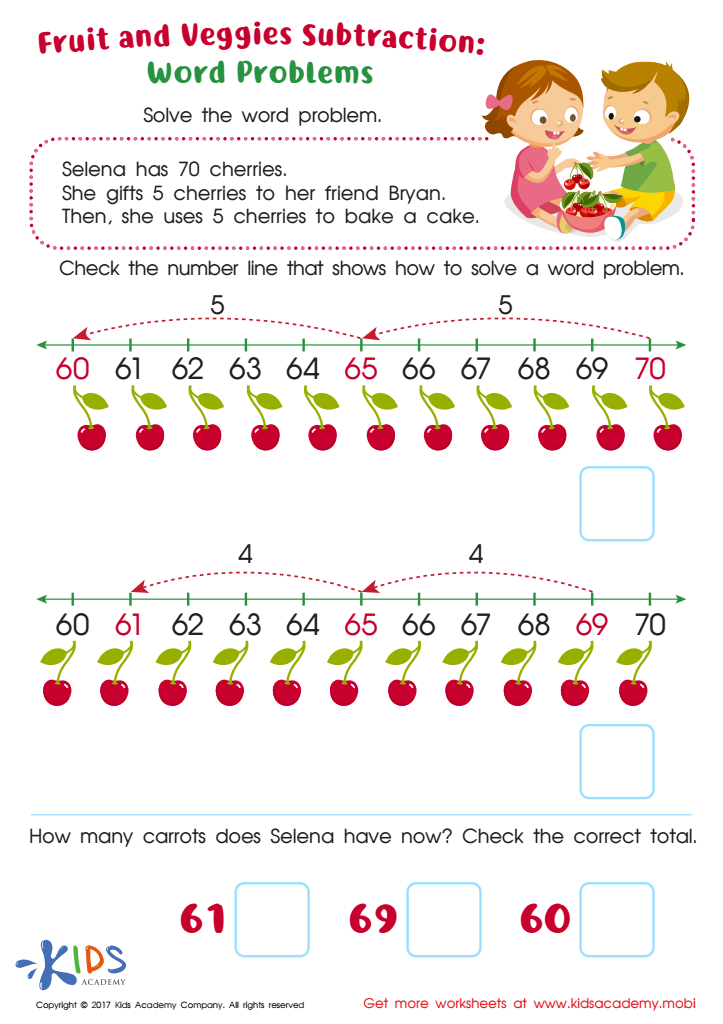

Subtraction Word Problems Free Printable
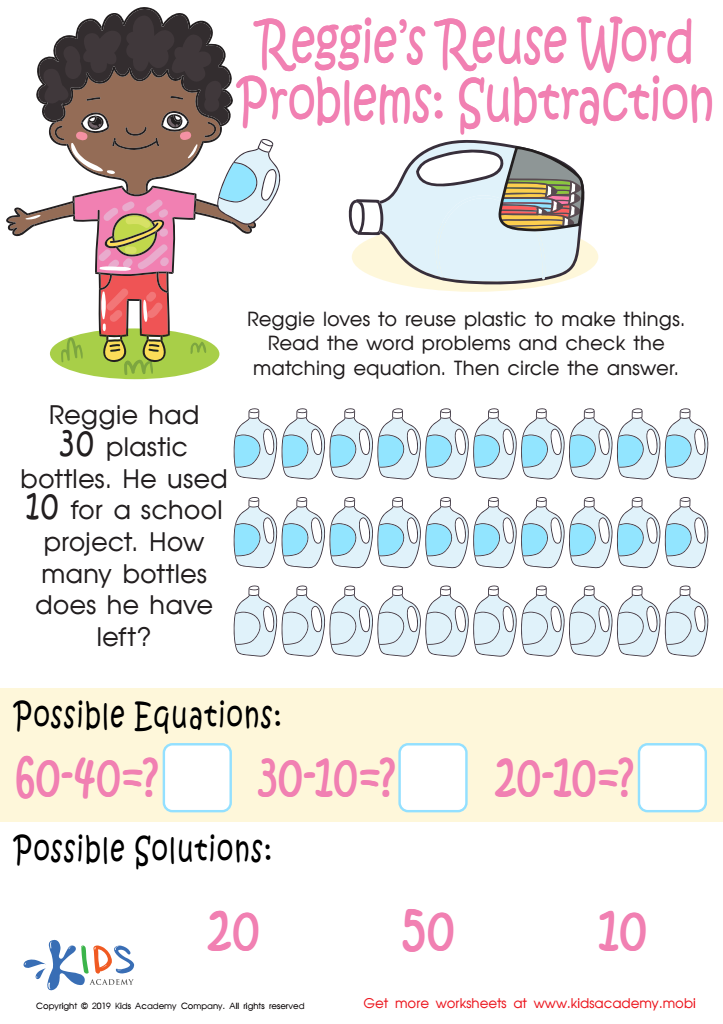

Reggie's Reuse Word Problems: Subtraction Worksheet
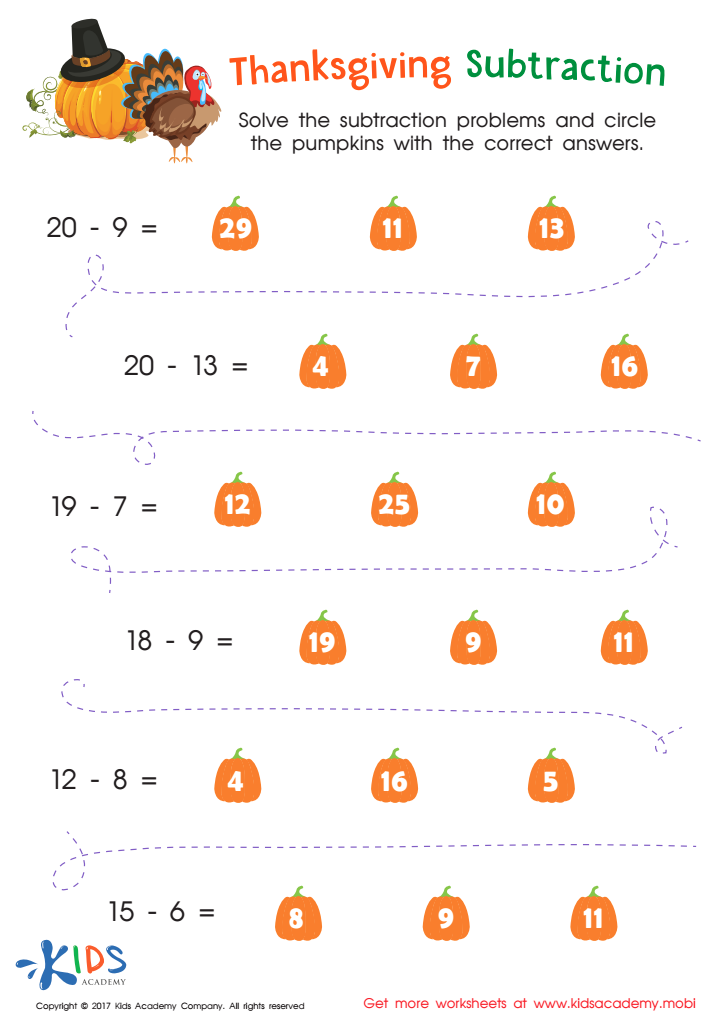

Thanksgiving Subtraction Substraction Worksheet
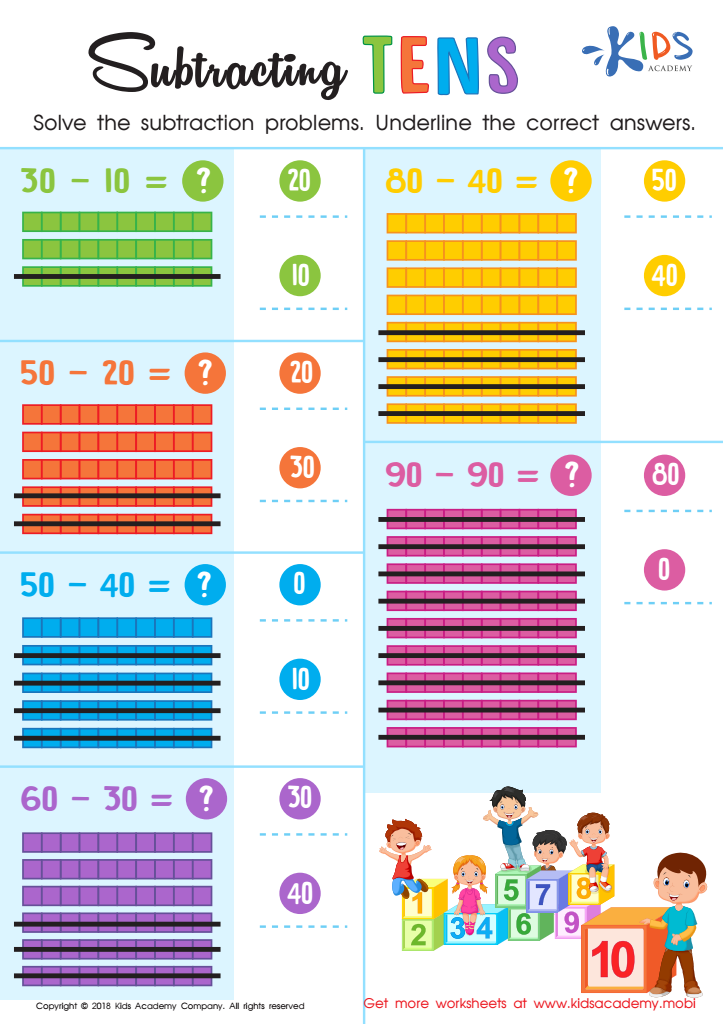

Subtracting Tens Worksheet
Parents and teachers should prioritize subtraction practice alongside normal addition and subtraction for children aged 3-6 for several key reasons. First, early math skills establish a strong foundational understanding of mathematical concepts, which is crucial for later academic success. Subtraction, though often overshadowed by addition, is a fundamental operation that helps children learn about quantity, relationships, and basic problem-solving.
Engaging young learners in subtraction activities promotes critical thinking as kids learn to take away from a total, compare numbers, and understand the concept of ‘less.’ Moreover, it enhances cognitive development; when children practice subtraction, they strengthen their working memory and attention span.
Including both operations in practice fosters a well-rounded understanding of arithmetic, making it easier for children to grasp future mathematical concepts such as inequalities or basic algebra. Furthermore, subtraction helps children understand real-life situations, such as sharing or saving, by applying math to everyday contexts, enhancing their practical reasoning skills.
Overall, supporting children in both addition and subtraction encourages a love for math, builds confidence, and sets the stage for lifelong mathematical literacy. Parents and teachers play a critical role in nurturing these skills during these formative years, ensuring children are prepared for continued learning.
 Assign to My Students
Assign to My Students
















